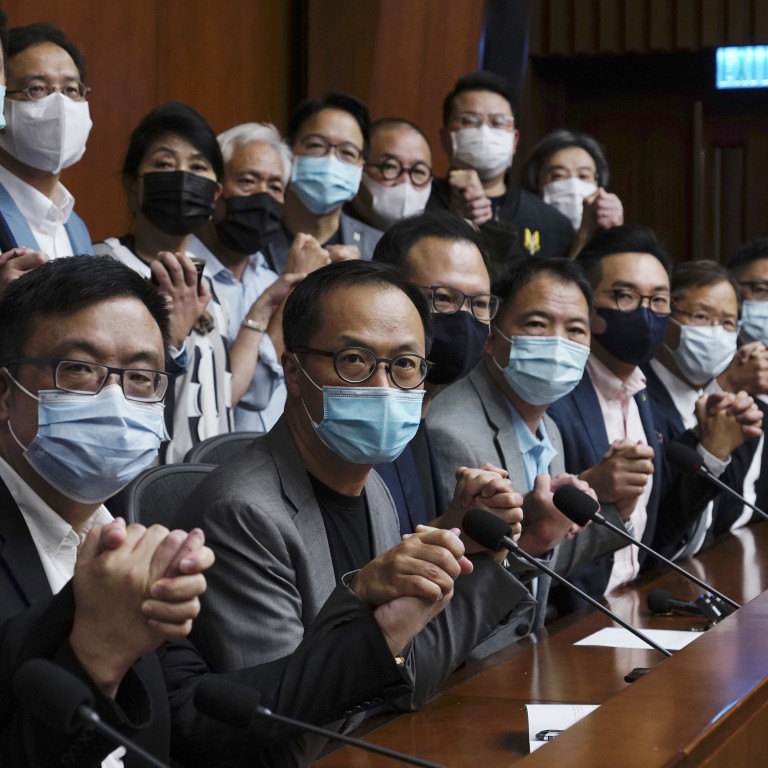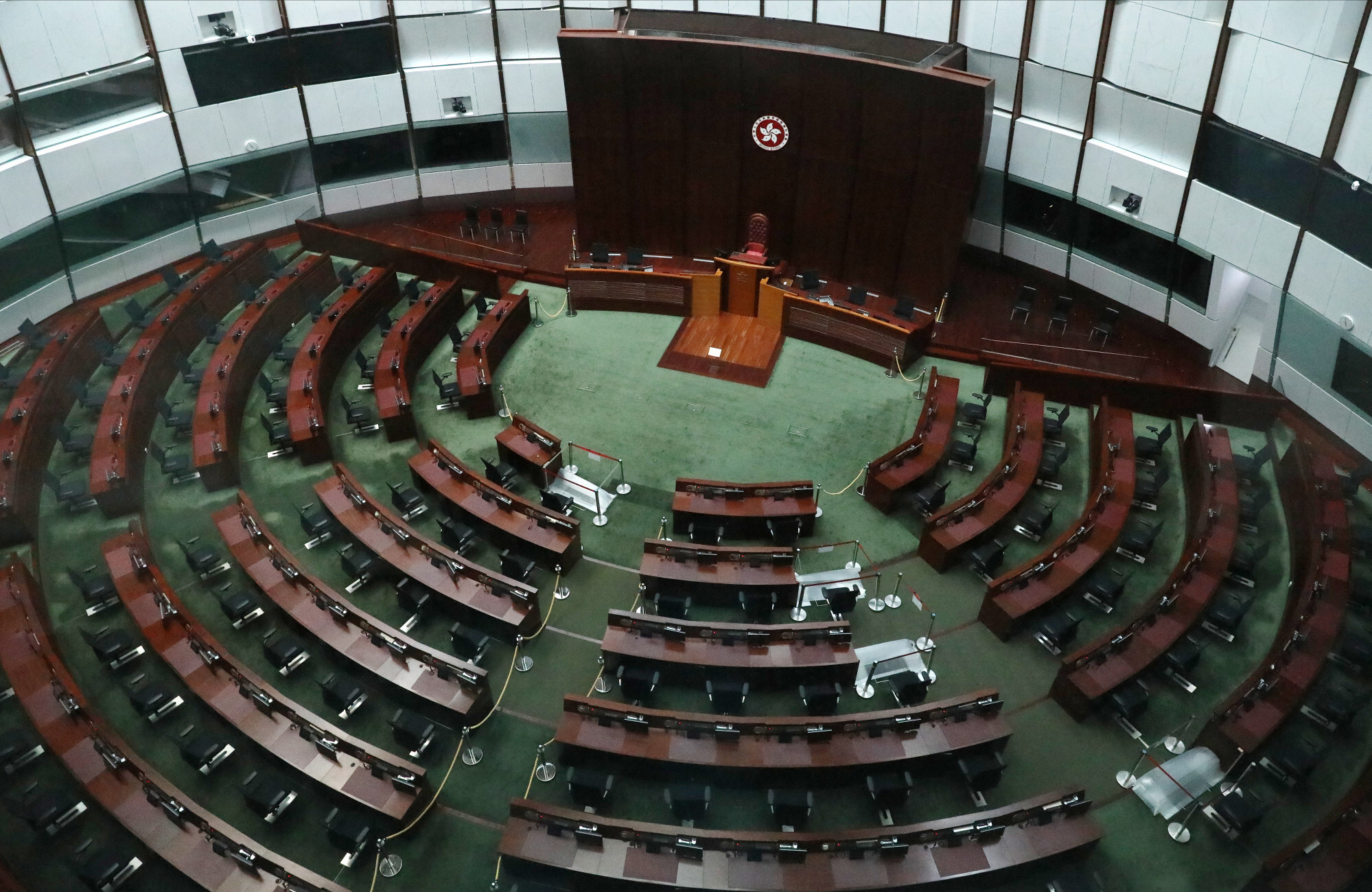
Hong Kong’s Legislative Council paid out HK$13.3 million in end-of-service gratuities to resigned opposition lawmakers
- Legco secretary general Kenneth Chen says all those who resigned were entitled to the payments, so long as they completed the original four-year term of office
- Lawmaker Kwok Wai-keung, who had raised the matter of the gratuities, says ‘public has the right to know’, though he personally has no issue with the payments
A total of HK$13.3 million (US$1.7 million) in end-of-service gratuities were paid to the 19 Hong Kong opposition lawmakers who resigned last year, 16 of them in protest against a decision from Beijing that led to the ousting of four fellow pan-democrats.
Fernando Cheung Chiu-hung, one of those who received the gratuities, told the Post on Friday that the opposition camp had been told they were owed the payments by the Secretariat in a meeting after their resignations last November.
“Lawmakers of the pro-establishment camp will also get such a gratuity payment, as long as they finished the four-year term,” Cheung said. “Of course, this term was special given it’s extended, but it should not affect what had been promised.”

The four had previously been barred from running for re-election because electoral officials were convinced that they lobbied for or supported foreign intervention in Hong Kong affairs.
Hong Kong lawmakers face ousting after oath for ‘problematic’ behaviour
According to the Legco Secretariat, the total amount of the gratuities paid to the 19 who resigned came to about HK$13.3 million. However, the four disqualified lawmakers – former Civic Party lawmakers Alvin Yeung Ngok-kiu, Dennis Kwok and Kwok Ka-ki, along with Kenneth Leung of the Professionals Guild – were only eligible for a total of HK$739,000 in expenses reimbursement and HK$346,000 in severance payments for their 34 staff members.
The four also had to repay their salaries and operation expenses for the period lasting from July 30, 2020, the day they were banned from seeking re-election, to November 11, 2020, the day of the decision to unseat them.
Under the current arrangements, in addition to their monthly salaries, lawmakers are entitled to an end-of-service gratuity calculated at 15 per cent of their wages, payable upon serving out a Legco term. Legislators currently earn HK$102,820 a month, while the body’s president gets HK$205,640.
Pro-establishment lawmaker Kwok Wai-keung, who raised the question about the gratuities to the Legco Secretariat, said he did so because “the public has the right to know that these resigned lawmakers still got paid”. Kwok, however, insisted that he was not suggesting it had been wrong to pay them.
Carrie Lam slams ex-opposition leader for ‘not understanding democracy’
Carrie Lam, meanwhile, was set to see her salary return to around its original level of HK$434,000 a month this financial year – after she voluntarily reduced it to HK$390,000 last year – with a spokesman for her office saying on Friday that the pay cut would expire by the end of June.
Since 2018, the chief executive’s monthly salary has been adjusted annually in July based on inflation. From July 2019 to April 2020, Lam’s monthly salary was HK$434,000, making her one of the highest-paid political leaders in the world.
Legco secretary general Chen on Friday also touched on the case of two pro-independence lawmakers-elect, Sixtus Baggio Leung Chung-hang and Yau Wai-ching, who were stripped of their seats in November of 2016 over anti-China antics during their oath-taking a month earlier.
Chen said Yau had been repaying in monthly instalments the roughly HK$930,000 in pay, operating expenses and advanced payments she was required to return. As of the end of March, Yau had returned a total of HK$175,000, and – with interest and legal costs – would owe a further HK$1 million over the next 41 months.

Leung, however, had failed to repay any of the funds he owed, Chen said, adding that it was not worthwhile incurring further costs trying to recover the money, as the activist had been declared bankrupt by the High Court.
Last year, Leung revealed he was seeking political asylum in the United States because of perceived threats to his personal safety after “being tailed by unknown agents” for months.
The Legco Secretariat also revealed on Friday that it had commenced legal proceedings against politician “Long Hair” Leung Kwok-hung – who was among four opposition lawmakers disqualified in 2017 over improper oath-taking the year before – in an effort to recover some HK$2.7 million in expenses.
The total legal costs incurred pursuing Baggio Leung and Leung Kwok-hung’s cases was about HK$1.47 million, the Secretariat said.
Leung Kwok-hung is currently remanded in jail after being charged under the national security law.
Additional reporting by Tony Cheung

